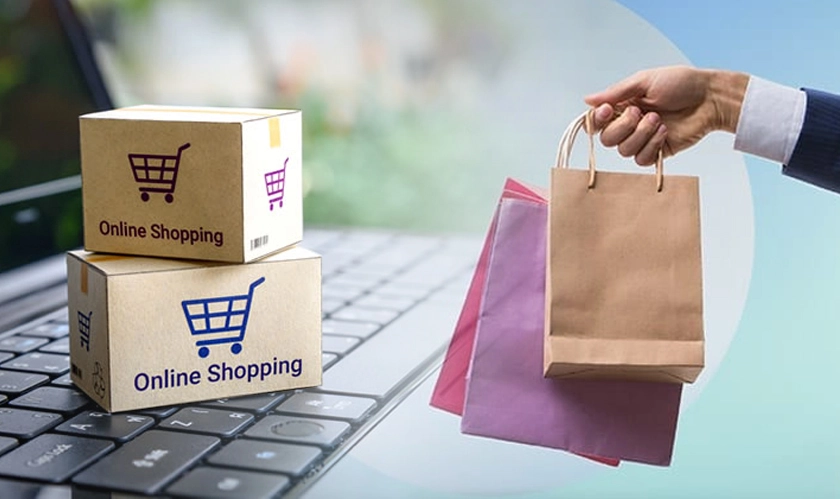Business others what to know before starting an ecommerce business: Top 5 things
Others

CIO Bulletin
2023-04-06
Thinking of launching your very own ecommerce business? With the growing popularity of online shopping, there’s never been a better time to begin.
To help better prepare you for your new, exciting adventure in online sales, here are five things to know before starting an ecommerce business.
1. What products you want to sell
Today, consumers can purchase just about anything when shopping on the internet. However, not all products are equal in terms of the potential profitability they can bring to your business. In order to give yourself the best chance of success, it’s crucial to spend a decent amount of time determining what products you want to sell with your ecommerce business.
A good place to start is by considering your own interests. After all, if you’re passionate about what you sell, your brand will be more appealing to your potential customers, and investing your time and energy into your business will come more naturally.
You can also take advantage of free tools like Google Trends and Ubersuggest to see what products are trending. Once you have a product idea in mind, research the market to analyze your competition and see how you can differentiate your business to better attract shoppers.
2. Who your ideal customer is
In addition to deciding what products you want to sell, you’ll also want to know who your ideal customer is before launching your ecommerce business. By ensuring that you have a good understanding of your target market and their wants and needs, you’ll be able to better tailor the product, services, and content you offer.
For this step, it’s advantageous to create a buyer persona, which is a profile of your ideal customer based on data and research. This entails determining basic demographic information, like their age, income, location, and gender identity along with background details, such as their job and career path, family, and lifestyle. You’ll also need to ascertain what their challenges and goals are and figure out what kinds of communication they prefer.
3. How you plan to package orders
Unless you’re going to be selling digital products, you’ll need to think about ecommerce packaging. When customers purchase items from your business, it’s essential that their orders are packaged in a way that ensures that they’ll arrive safely.
Bubble wrap, tissue paper, sturdy or padded envelopes, cardboard boxes… The best packaging materials for your online store will depend on the specific products that you sell. However, your packaging strategy shouldn’t only be about getting your products from Point A to Point B in one piece!
The unboxing experience is becoming increasingly important to consumers. By making the act of opening an order from your business memorable and enjoyable for your customers, you can strengthen brand loyalty and encourage repeat purchases. Consider adding your brand’s logo and colors to your packaging design and including a personalized note and free sample in every order to craft an unboxing experience that shoppers will love.
4. Where you’ll sell your products
Before starting an ecommerce business, you’ll need to decide where you want to sell your products: online marketplaces or your own ecommerce website. Both options have their advantages and disadvantages, so it’ll be up to you to decide which is best suited for your unique business.
Online marketplaces like Amazon and Etsy offer sellers lots of convenience, as users generally just have to add their business info and products, and their chosen platform will provide them with a ready-made storefront. However, there’s a good chance that there will be many merchants selling similar products to yours on the platform, meaning competition will be high.
Furthermore, the added convenience of online marketplaces comes at a price, with most platforms charging a listing fee for each product as well as a commission for every sale.
If you’re looking to maximize control with your business, setting up your own ecommerce site will be your best bet. As there are numerous online-store builders out there, be sure to choose a powerful solution like WiziShop that’ll allow you to not just launch your business but also help it grow.
5. What your marketing strategy will be
Marketing is necessary for both online and offline retailers alike. Even if a merchant is selling the most amazing product available, people won’t buy it if they don’t know that it exists!
Although your marketing strategy will likely change throughout the life of your ecommerce business, it’s beneficial to have a good plan in place before your store gets off the ground. Through your research concerning your niche and ideal customer, you’ll discover some helpful clues as to how to market your business.
For example, once you find out where your target audience is on social media, you can create business profiles on those specific networks to better connect with them. Additional marketing tactics to consider implementing include email marketing, SEO, blogging, paid advertising, podcasting, etc.
Banking-and-finance
Artificial-intelligence
Travel-and-hospitality
Management-consulting
Banking-and-finance
Banking-and-finance
Food-and-beverage
Travel-and-hospitality
Food-and-beverage